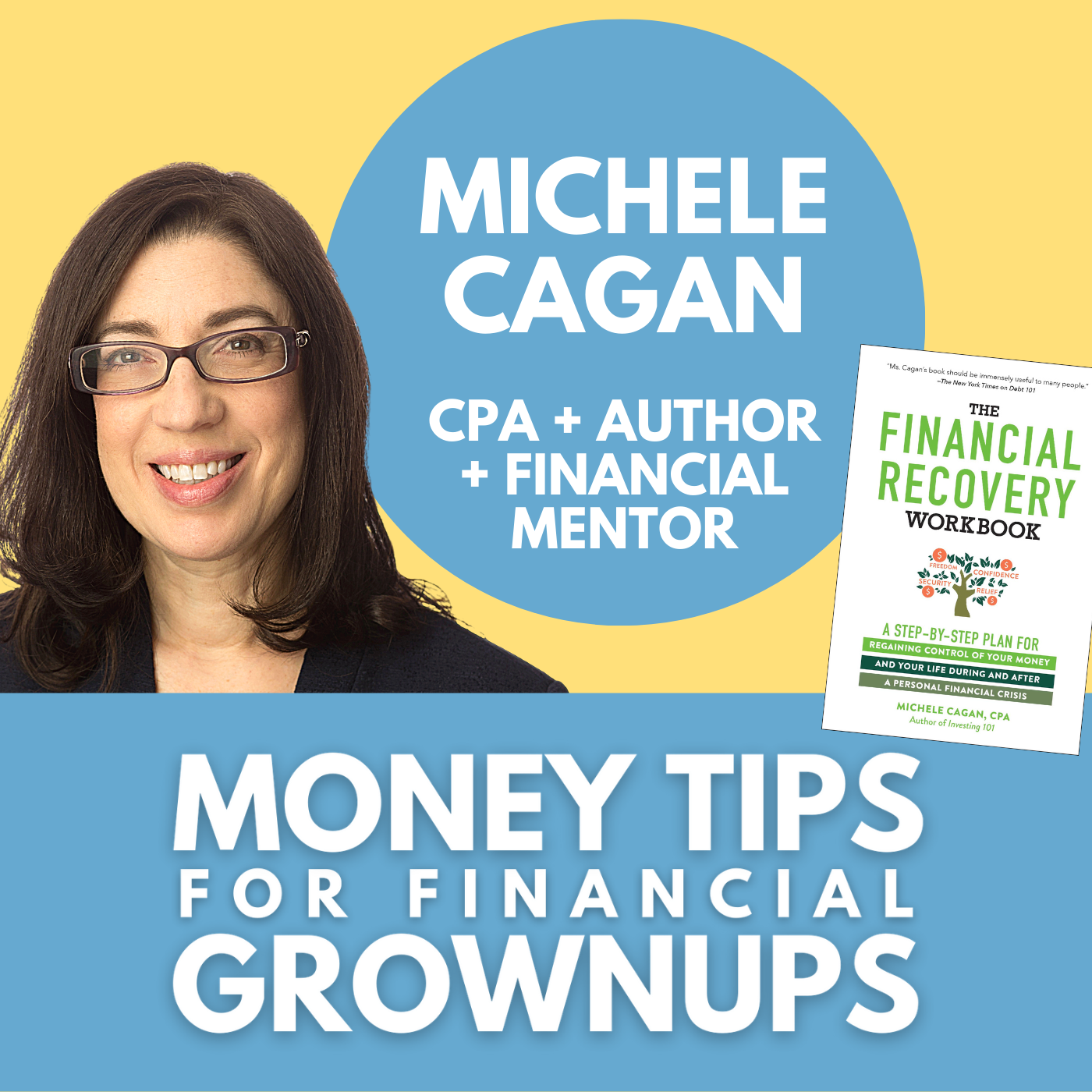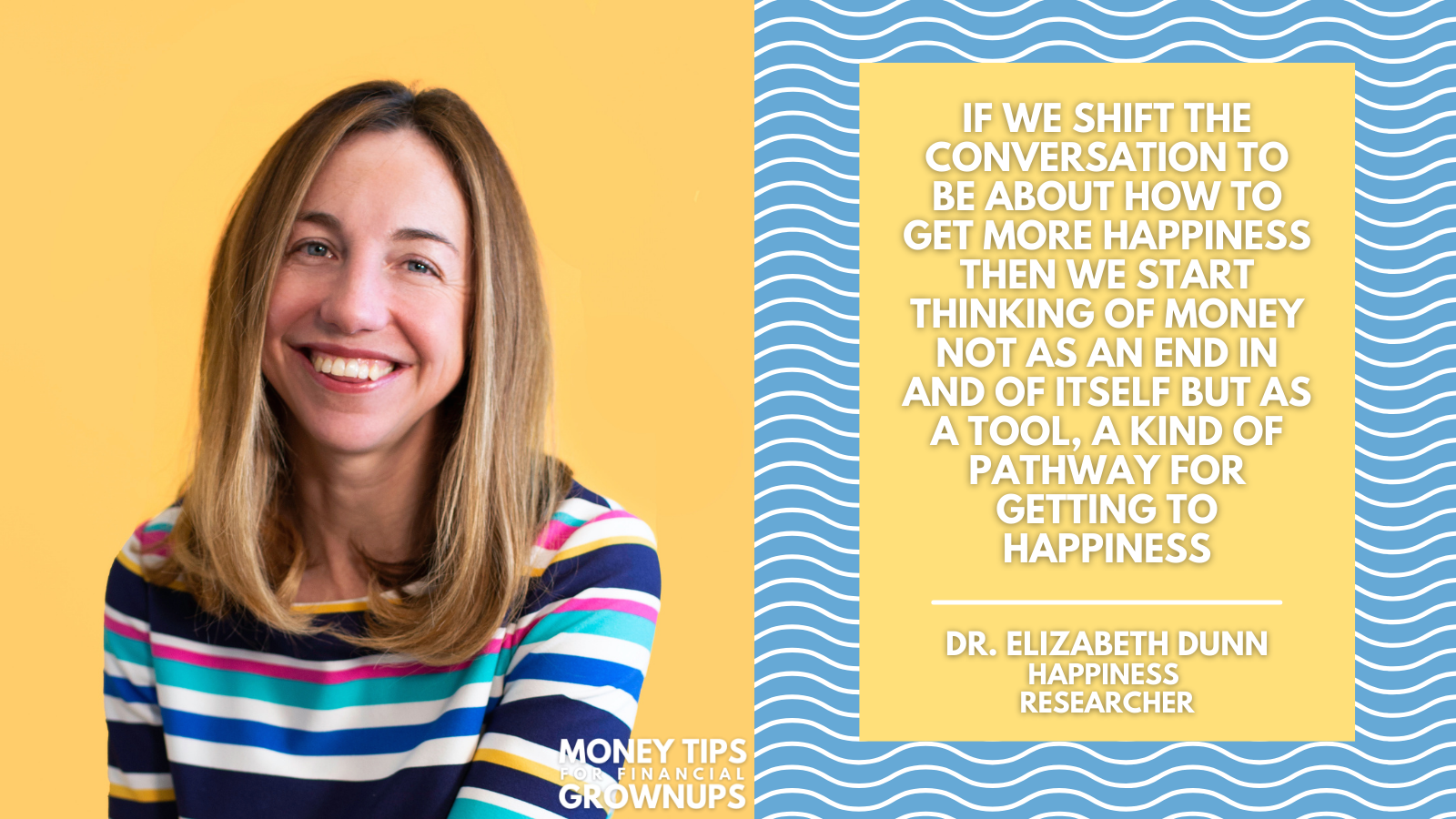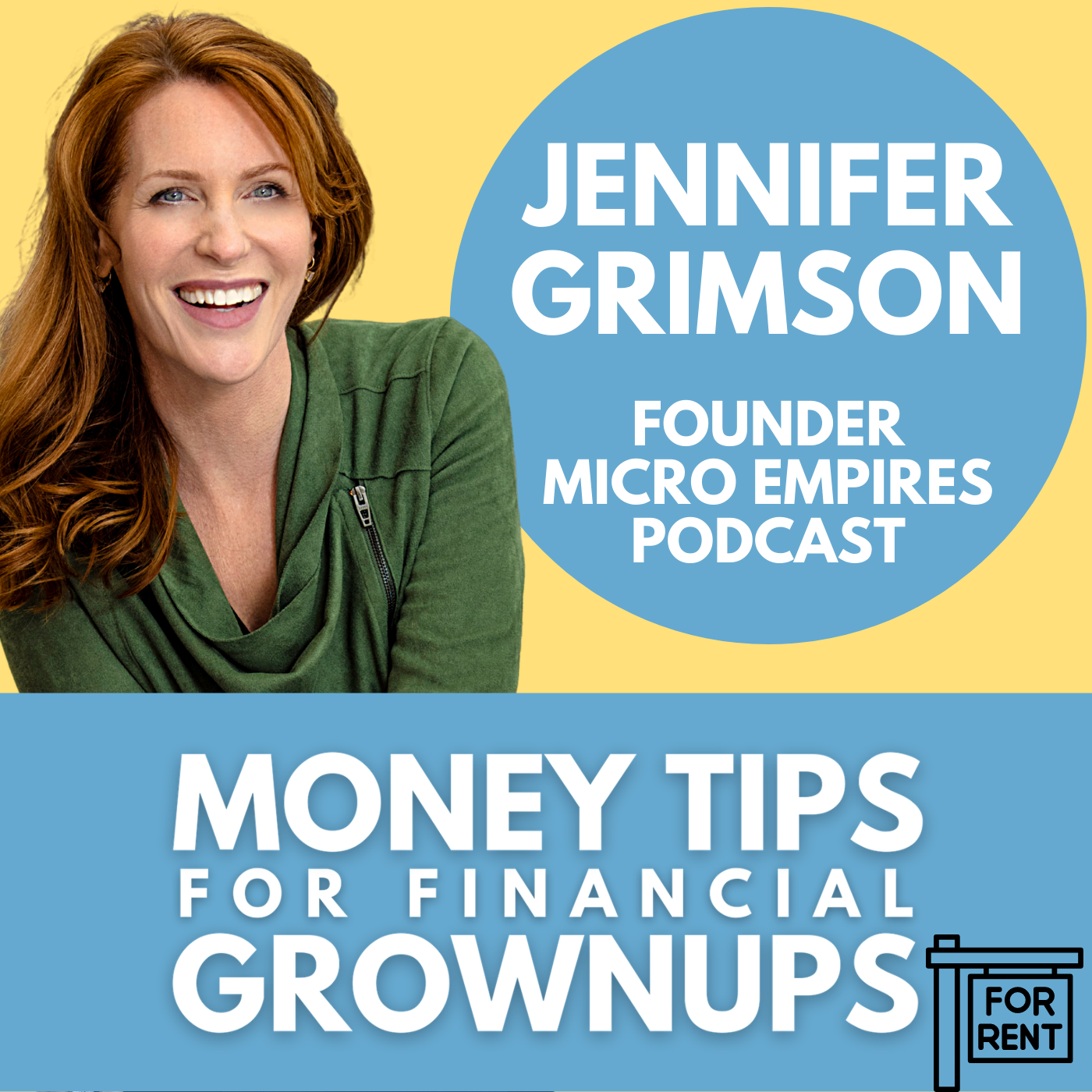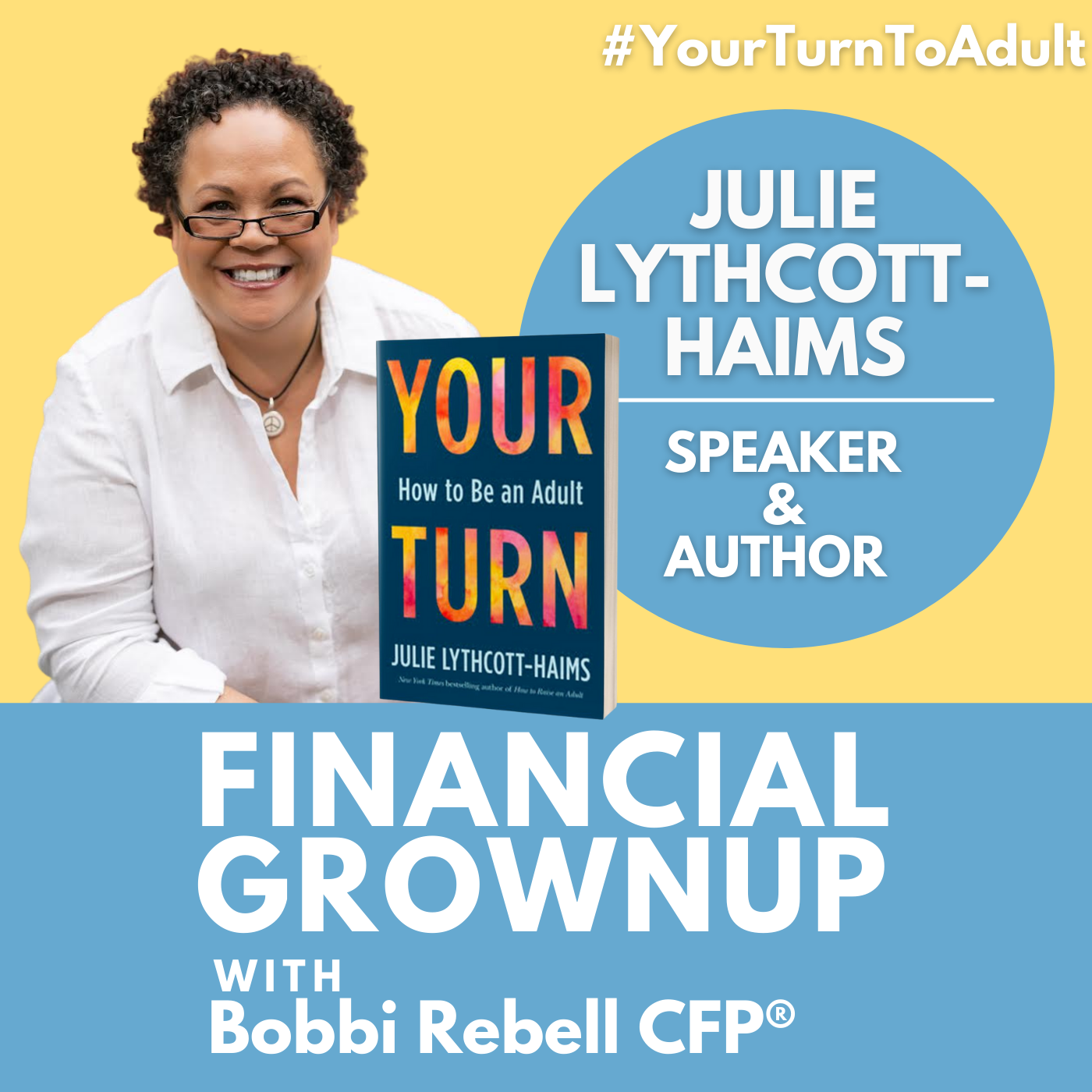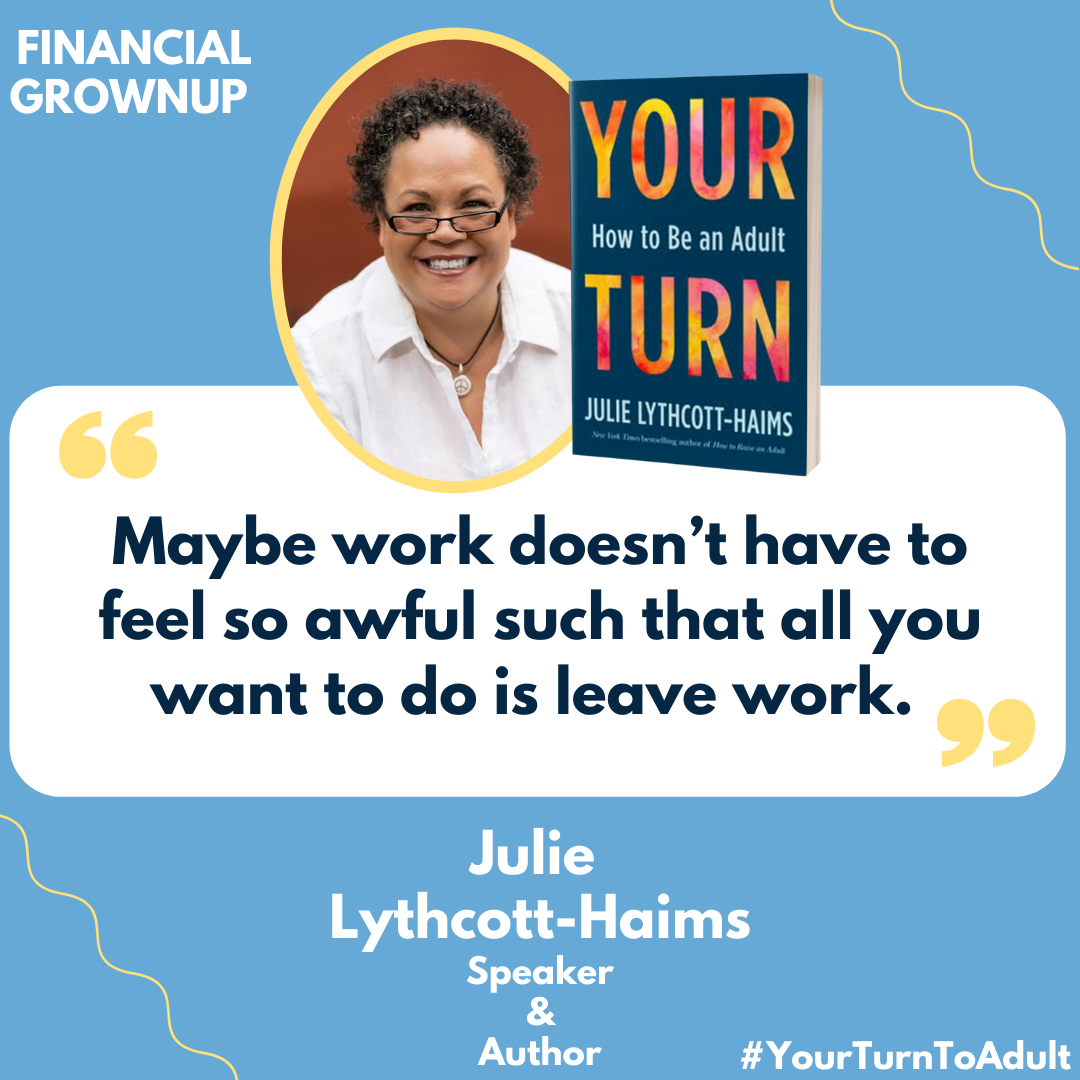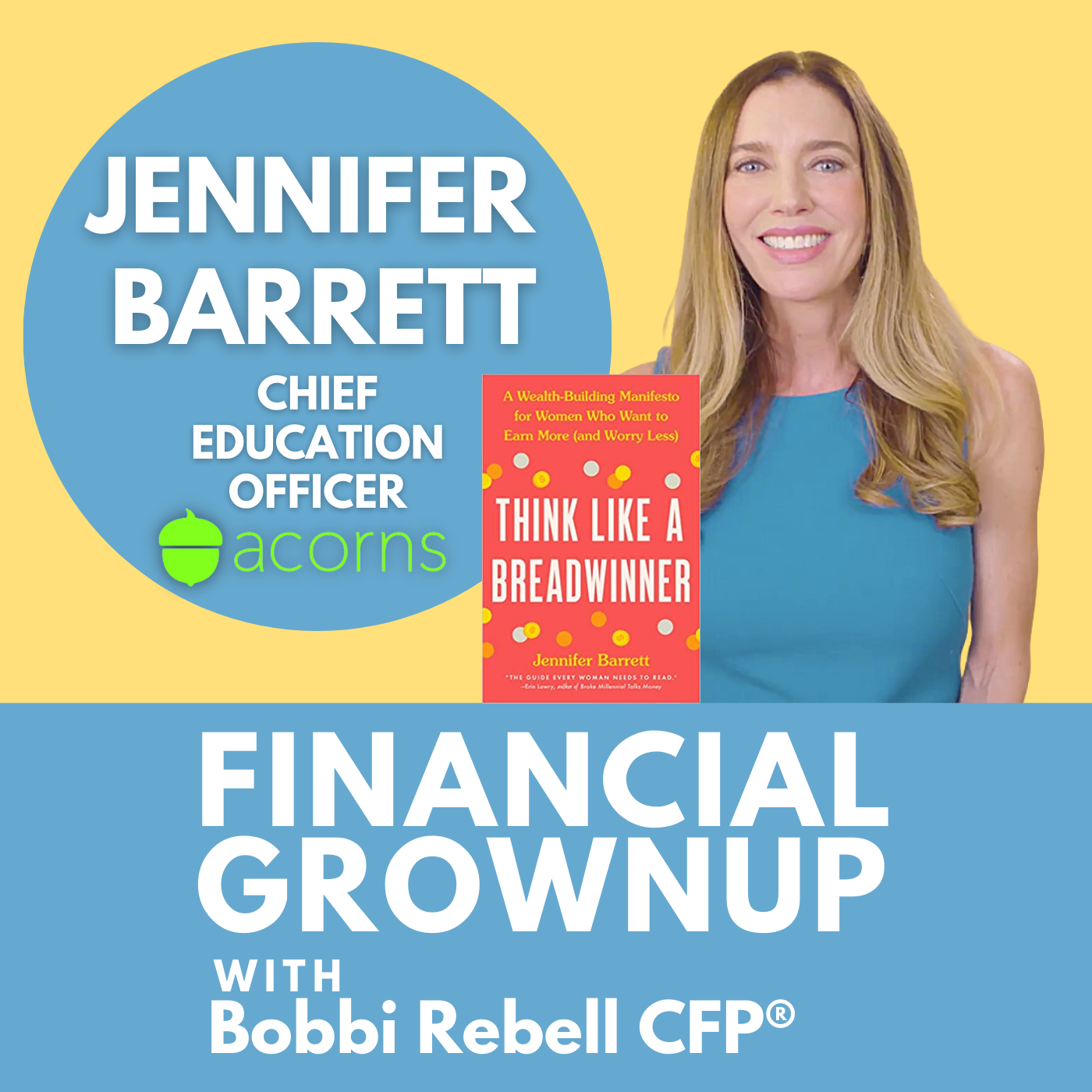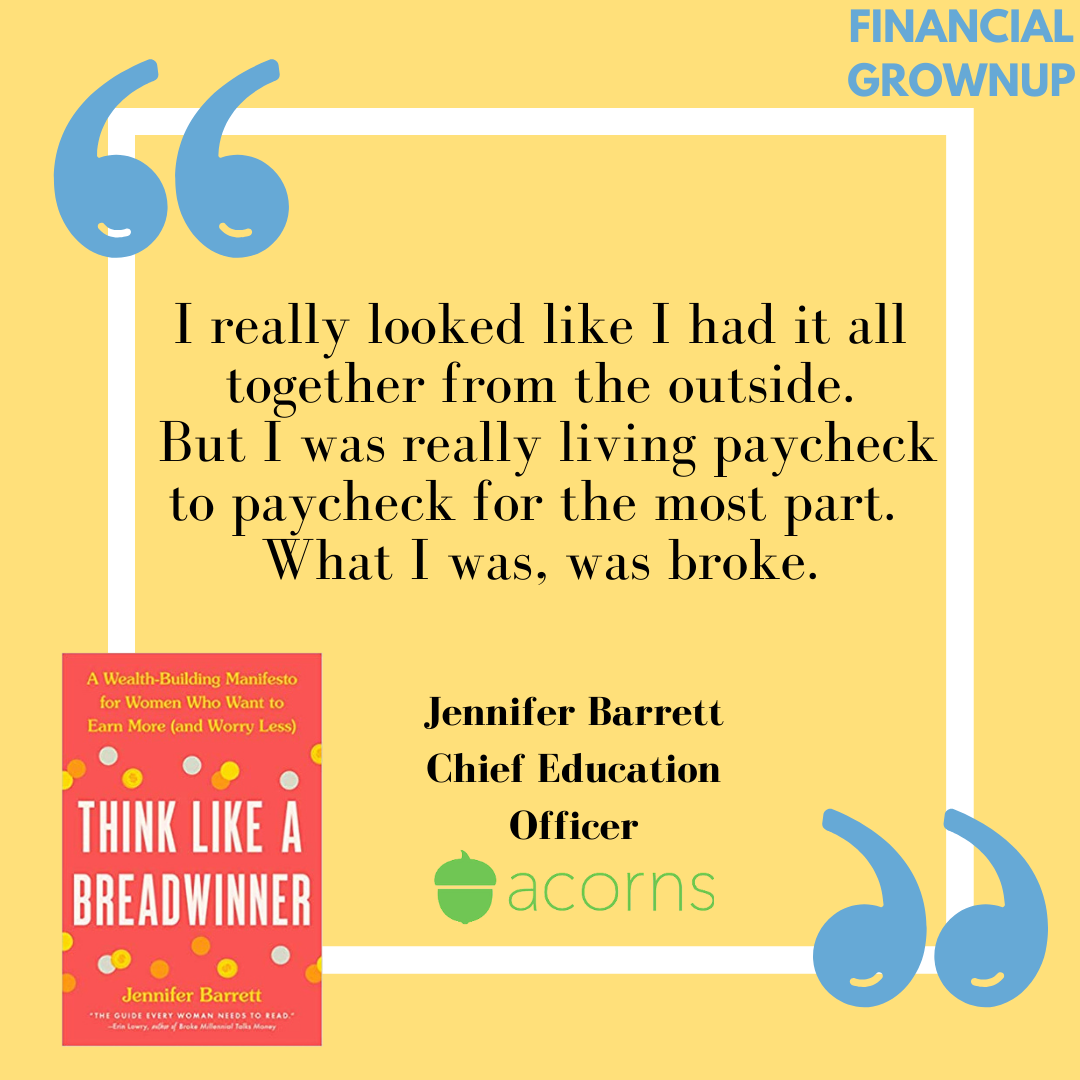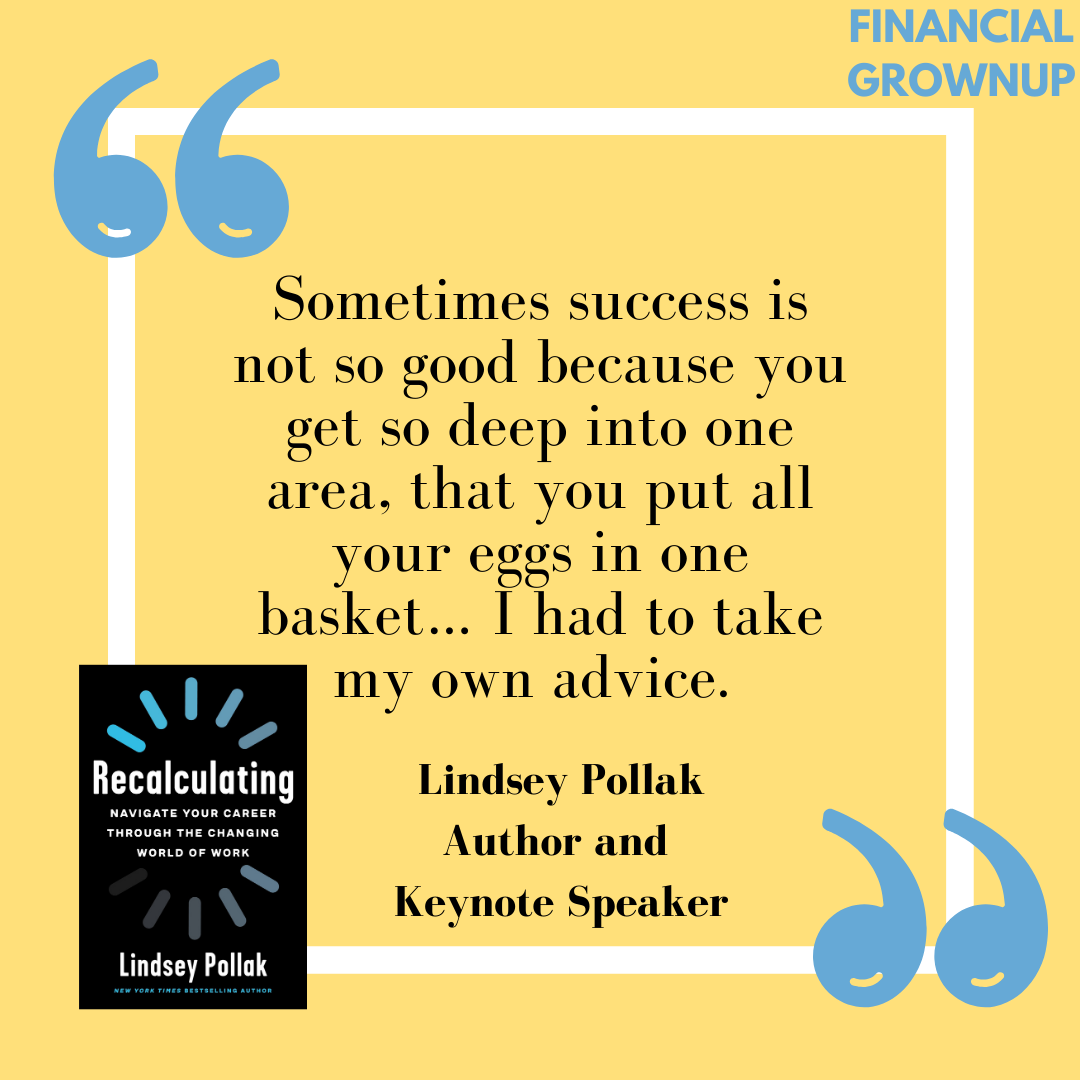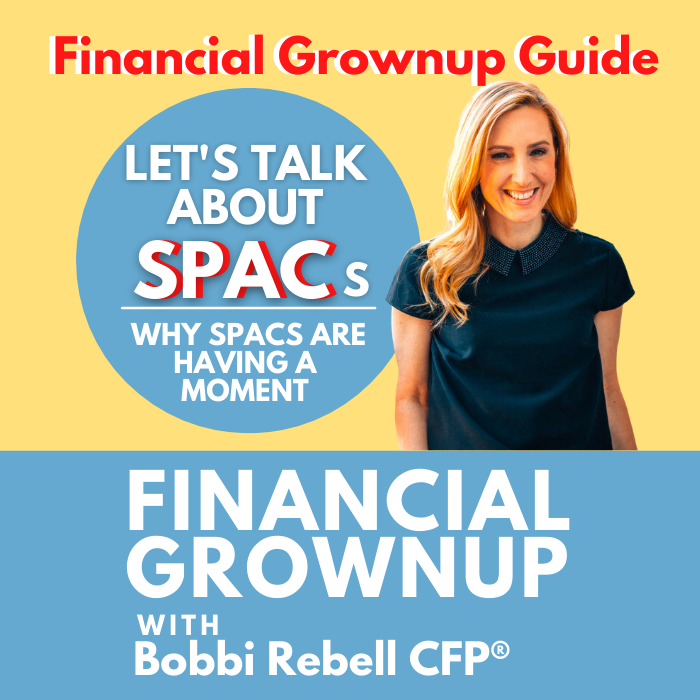Who needs a start-up when you can buy your way into a business? My Fab Finance founder Tonya Rapley shares why and how she decided to buy an online business and her tips on what she would and would not do differently.
Money Tips On Buying An Online Business
Learn the types of questions you should ask before buying a business.
Learn how Tonya increased the average order value and how you can do the same.
Learn what kind of things you can do in the beginning to prepare for the growth that comes later.
Why it’s so important to have a marketing strategy for your business.
Follow Tonya!
Instagram - @tonya.rapley
Facebook - @OfficialTonyaRapley
Twitter - @tonya.rapley
Pinterest - @ItsTonyaRapley
LinkedIn - @tonyarapley
Website - tonyarapley.com
Follow Club Loofah!
Instagram - @clubloofah
Facebook - @clubloofah
Pinterest- @OfficialClubLoofah
Website - https://loofah.club
Follow My Fab Finance!
Instagram - @myfabfinance
Facebook - @MyFabFinance
Twitter - @MyFabFinance
Website - myfabfinance.com
Other Important Links
Follow Bobbi!
Instagram - @bobbirebell1
Twitter- @bobbirebell
LinkedIn- Bobbi Rebell
Website- http://www.bobbirebell.com
Did you enjoy the show? We would love your support!
Leave a review on Apple Podcasts or wherever you listen to podcasts. We love reading what our listeners think of the show!
Subscribe to the podcast, so you never miss an episode.
Share the podcast with your family, friends, and co-workers.
Tag me on Instagram @bobbirebell1 and you’ll automatically be entered to win books by our favorite guests and merch from our Grownup Gear shop.
Full Transcript:
Bobbi Rebell:
I hope you guys are all celebrating some big adulting milestones this season. And you know what? Finding the perfect gift for those celebrations can be kind of tough. I have the solution over at grownupgear.com. We have adorable hats, totes, mugs, pillows, tees, and seriously the most cozy and comfortable sweatshirts. They're all on grownupgear.com and all at affordable prices. We even now have digital gift certificates if you can't decide. Use code grownup for 15% off your first order. Buying from our small business helps to support this free podcast. And you know what? We really appreciate it. Thanks guys.
Tonya Rapley:
They were taking a significant loss. They were selling these loofahs for 4.99 and doing free shipping. Ridiculous.
Bobbi Rebell:
You're listening to money tips for financial grownups with me, certified financial planner Bobbi Rebell, author of How to Be a Financial Grownup. And you know what? When it comes to money, being grownup is hard, but together we've got this.
Bobbi Rebell:
Hi, friends. Okay, we all know starting a business is not easy, but the truth is you don't have to start a business to be a business owner. There's a whole lot of options out there if you want to buy your way in. But there's a lot you need to know before you get started, and we're going to share some of the secrets that you need to know.
Bobbi Rebell:
My guest today is Tonya Rapley. You may know her as the co-host of one of the shows we featured in our summer watch party, Going From Broke. We were a little obsessed with it. Anyway, it's executive produced by Ashton Kutcher. Check it out on the Crackle channel. Tonya is also the founder of My Fab Finance and the author of The Money Manual. She is a big deal, guys. She's been featured everywhere from Vogue, Good Morning America, and The Today Show. But what you probably don't know is that she's also a holistic wellness business owner. In 2019 Tonya purchased Club Loofah, an inclusive self-care brand focused on inspiring and supporting regenerative practices for all. She mentioned this to me in passing recently, so I roped her into a podcast interview to tell us more about buying a business and basically how it all works. It's really interesting, guys. Here is Tonya Rapley.
Bobbi Rebell:
Tonya Rapley, you are a financial grownup. Welcome to the podcast.
Tonya Rapley:
Thank you. I'm excited.
Bobbi Rebell:
I am so excited to have you. Long time overdue. I loved having you in my book and now here. You are the founder of My Fab Finance, which has an incredible community as well. You're host of Going From Broke, which was one of my favorite shows that I caught up on this summer. We highlighted it in our summer watch series. You have the 30-day shift program. And what we're going to talk about is your new online business, Club Loofah. Welcome, welcome.
Tonya Rapley:
Thank you so much. It sounds like I do so many things, and I do.
Bobbi Rebell:
So many things, and wife and mother and all the things. Before we get into your online business, tell us a little bit about My Fab Finance.
Tonya Rapley:
Yeah, I mean, My Fab Finance, I started in 2013. It was essentially my accountability partner, as I decided that I was tired of being inconvenienced by being financially insecure. My goal at the time was to improve my credit score so that I could get my own apartment in New York City and hopefully get free clothes from Macy's. I just wanted free clothes. I was like, "Maybe they'll see what I'm doing and send me free clothes."
Bobbi Rebell:
Free clothes, always a noble cause.
Tonya Rapley:
You know, you know. And here we are, I guess. Well, I've been a full-time entrepreneur. I was able to transition into doing My Fab Finance full-time in 2015. We've created so many different elements of My Fab Finance and different iterations, but today our goal is to create a safe space for women to talk about money, as well as we have a mission of helping 1000 people achieve at least one financial goal that they're proud of.
Bobbi Rebell:
When we were doing our interview for my book, which is going to come out in the spring, which, guys, I'll talk about another time, you kind of mentioned, "Oh, by the way, yeah, I bought an online business." And so I wanted to bring you on the podcast, because you mentioned this oh so casually, like, "I'm doing 100 things, and by the way, I bought an online business," and then you move on to something else. I need to know about this. So a lot of people, they're home during this extended version, unfortunately, this extended pandemic that's so much longer than we thought we would be home. Of course it's good to start an online business, but not everyone has to start from scratch. Sometimes if you have the resources you could actually buy something and give yourself a jumpstart. And it sounds like that's what you did. So tell us about this decision to buy an online business and what you did. What is it?
Tonya Rapley:
Yeah. So as a financial educator, I realized that a lot of my income was service-based. It was based on my ability to show up to coach my audience and everything else, and I wanted something that was easier to scale. That's how I thought about it before I bought the business, easier to scale. I knew I did not want to come up with a new concept, create a new brand and everything else. And so my sister, who had just closed her Shopify store, asked me... She said, "I know you're interested in potentially purchasing another business. Have you checked out the Shopify exchange?" And I hadn't heard of it, but I went to check it out immediately. And she then sent me this company, Club Loofah. And she just typed, "I think that you could really do something with this. It's a great concept."
Tonya Rapley:
And so I started to look into it more, and I thought to myself, "Wow, this is a really good concept." It is essentially a bath subscription business, a bath tool subscription business, because most people don't realize that you're supposed to replace your loofah every three to four weeks. Your loofah, your sponge, whatever it is you use in a bathroom, before it starts smelling, before it starts crumbling, you're to replace it. So we reached out to the owner, and he was about to actually close the doors, because he hadn't had any bites or anyone that had... He had a few conversations, but no one that was really serious. [inaudible 00:06:09], "Hey, the money's in escrow. Let's do this." So we ended up buying the business from him. He was actually based in Riverside, California at that time. We were living in Los Angeles, so we drove up to Riverside with a U-Haul, got all the inventory that he had on him-
Bobbi Rebell:
Oh, right, so you actually have to take inventory, because I have-
Tonya Rapley:
It is not drop shipping. Yes.
Bobbi Rebell:
I do drop shipping for my grownup gear.
Tonya Rapley:
It is not drop shipping. We do not have a fulfillment center just right now. And so that's the thing. We got the items from them. We just started learning the e-commerce business when it came to loofahs. When we purchased the company, one of the things that was attractive to me was that it already had subscribers. It was a subscription business. So the day that we purchased the company, they had new orders, because it billed monthly.
Bobbi Rebell:
Wait, why was he selling it? Presumably... I would always be suspicious. If someone's selling a business, you kind of go, "Well, why?" Because maybe if it's a good business, why would he sell it? So I would be wondering, what are the red flags?
Tonya Rapley:
So the reason he was selling it actually was because he inherited the business from the previous owner. So there was a previous owner who started the business for her daughters because she wanted to teach her daughters entrepreneurship. Then her daughters lost interest in it, and she didn't have the capacity to manage it, but he was already onboard as the marketing officer, the chief marketing officer, so he bought it. He believed in the business, thought it was a good company. He took it over. But then his father passed away, and he decided that he didn't want to do things just because anymore. He wanted to live a more purpose-focused life.
Bobbi Rebell:
So I have not seen this site before you, but it has a really nice editorial focus, and that's something that that is one of your strengths. Tell us more about the changes that you then brought in.
Tonya Rapley:
Yeah. Thank you very much, because when I bought the company, it was very fun and kitschy, and one of the things we realized was, if we're going to compete with the Targets... And we're not going to compete with Target and Amazon. We cannot drive our prices low enough to compete with them, so we have to appeal to a different demographic, someone who value self-care, who is willing to invest in their self-care and what's a higher end feeling product. And so we rebranded to go for a higher end. And so now the products that we're rolling out are more luxury-focused, or they're items that you can't find in your drug store. That was very intentional. And we wanted to clean it up a little bit. The company was based in California, so it was very beachy, Hollister... Yeah.
Bobbi Rebell:
When you look back, what would you have done differently? Are there questions you would have asked that you would advise people that are looking to buy an online business that's already somewhat established... What should they go in knowing that you wish you knew?
Tonya Rapley:
Absolutely. So when I bought the company, [inaudible 00:08:55], "Okay, it's bringing in revenue. You have XYZ subscribers. Cool. All right. Yeah, let's do this." Now I would definitely ask about their average order value, because the average order value determines if you can run ads. From my perspective, I was thinking, "All right, we're going to buy this company, and we're going to run ads, and we're just going to blow this out the water." But in order for ads to make sense, your average order value needs to be above what your minimum ad spend is going to be, or what it costs to acquire a customer.
Tonya Rapley:
They were taking a significant loss. They were selling these loofahs for 4.99 and doing free shipping. Ridiculous. So one of the things we did when I came in was changed the shipping model. We now charge 2.99 for shipping. And then we also increased the price point on some of the items. We allow the loofah, the classic loofah, to be the loss leader, but we increased the price points on some of the other items and introduced higher-priced items to the store as well, so that average order value and just the opportunity to bundle products... There wasn't really a strong opportunity to bundle products. So now we're in the final stages of developing a body care line so that you can bundle your body care with your loofah, since it's it's all body care anyway. So that's one of the questions I definitely, definitely would have asked, is average order value.
Tonya Rapley:
The retention rate was pretty good. Their retention rate... And that's a question, especially if you're buying a subscription business. How long does your average customer stay around? And do you have any existing customer service infrastructure in place? Because he was handling customer service inquiries. I found very early that I hated that aspect of the business, and we ended up hiring someone, but it would have been nice if there was somebody that came along with the company. So any personnel that would come that know the business outside of us going and doing training with you is another question that I probably would have asked. Those are the two big things we had to change, was... The average order value was a killer early on, because the company was basically losing money.
Bobbi Rebell:
And you really didn't know that when you bought it.
Tonya Rapley:
No, I didn't, and I should have asked for stronger financials, but I think that [inaudible 00:10:55] I was like, "It's a subscription business. How bad could it be? It's not to the point where they're searching for customers every month. I bought the customers with the business. How bad could it be?" Yeah, I didn't do the math on that one, Bobbi. I didn't think like, "Okay, this is a 4.99 loofah, and they're charging nothing. Free shipping. How much is shipping?" But we addressed that, and within the first year we increase the average order value I think by like 32%.
Bobbi Rebell:
How did you do that?
Tonya Rapley:
We introduced a candle line, so most people were buying candles. And our candles are not... They're high-quality soy candles. Our candles were about 20... I think $28 for a candle. And so that definitely drives up, if you're buying a 4.99 loofah and a $28 candle. We introduced two higher end products, the ayate washcloth, and we actually just dropped our Japanese smoothing brush. So those aren't terribly expensive, but they're 10.99 and 11.99. And then we started adding bundle options. So when people checked out, we offer the upsell of a shower hook for people who don't have any hooks in their shower, so we offer that upsell. And then we also invited people to buy our family bundle, which was essentially four loofahs instead of one, just in case it's a family of four, and quite a few people decided to do that.
Bobbi Rebell:
Now, you mentioned you wanted something that you could scale. Are you still bundling at home? Who is packaging this stuff up? You said you had no fulfillment center.
Tonya Rapley:
Yeah, so we still have a fulfillment manager. We do have a storage facility where we keep the things, and we have a facility manager, our fulfillment manager. So we are very hands-on still in that process. I don't pack the loofahs anymore, my husband doesn't, but our fulfillment manager does. And she's great. She's awesome. And that's something we had to look at when we were considering if it makes sense for us to place our products in a fulfillment center, which [inaudible 00:12:42] take about $2.80 to $3 per product, and our average order value just could not sustain that yet.
Tonya Rapley:
So maybe when we roll out the body care line... Our body care line is sulfate-free, microbiome friendly, and we've been really intentional about the body cream that we're creating. And we have a non-abrasive exfoliant that we're also rolling out a non-abrasive skin exfoliant, so it's papaya extract and natural fruit extract to help with skin turnover and cell turnover. So I think that once we roll those out, we might be in the zone of being able to send it to a fulfillment center, but maybe not. We have to see how our fulfillment manager feels, because we'll keep those profit margins... We'll grow them as long as we can, and we'll minimize the money that we're spending as much as we can.
Bobbi Rebell:
And I am impressed, as someone that started a small online business during the pandemic. The amount of detail that you're going into is incredible. You know all of your numbers. What is your best advice, before we wrap up, for people that are considering buying an online business? You went basically to the Shopify exchange, and you can look for whoever's selling a Shopify site. Is that what you advise? And what else?
Tonya Rapley:
It's work. It's work. And decide what works for you, drop shipping, or whether you're going to do the order fulfillment yourself. But you also have to ask yourself, "Do I have the endurance to grow this?" Because I think a lot of times we hear about these overnight successes when it comes to shop owners. They get placed in Oprah's most favorite things list and everything else. But what happens if it doesn't? What is your marketing strategy? My main advice would be, have a sound marketing strategy for how you're going to acquire customers and keep your customers, because if you don't have customers, you don't have a business.
Bobbi Rebell:
So true and such good advice. Okay. We know everyone needs to go to Club Loofah for sure. Where else can people find you and find out more about you and My Fab Finance and the community there? And also you have a 30 day shift program.
Tonya Rapley:
Yeah. Yeah, because I don't have enough things going on, right, Bobbi?
Bobbi Rebell:
[crosstalk 00:14:44]. You need more.
Tonya Rapley:
So I decided to launch a personal coaching company, because a lot of women who didn't fall into the scope of work we do at My Fab Finance but wanted to know more about, "How do I confidently take on my next life phase?" And so I created a program, 30 day shift, for women who are looking to powerfully move into the direction of their next life shift. So that's at my personal platform. It's Tonya, T-O-N-Y-A, .rapley, or tonyarapley.com. If you go to that website, it actually has all of my companies. So it has a link to My Fab Finance. It has the link to Club Loofah. But if you're interested in Club Loofah, that website is actually loofah.club, so L-O-O-F-A-H.club.
Bobbi Rebell:
I didn't know that. That's another question though. You got to get the URL there. That's another thing you got to be asking. Wow.
Tonya Rapley:
Clubloofah.com is not available. And one of the things I wanted to do was make sure that we were in it for the long haul before I invested in buying the domain from someone else. Actually, after this interview, we're finally finalizing our trademark application, because the business was not trademarked, or they abandoned their previous trademark, so we're trademarking. So now that we've been in it for almost two years now, I'm in a phase like, "Okay, let's do all the things that we need to do and probably should have done." So I'm going to... Hopefully in the next year clubloofah.com will be ours. I'm like, "Who had a Club Loofah other than us?" I don't know.
Bobbi Rebell:
And they're just squatting on the name.
Tonya Rapley:
They're squatting, waiting for someone like me to come buy it from them. Because that's a big business too. Think about it. Buying and selling domains is actually a big business.
Bobbi Rebell:
It is a big business. And when I named Grownup Gear Grownup Gear, I looked very carefully at what was available before I named a company. So that's also something to really look at, whether you start a company or buy a company. Look at the domain names that the company owns, because that's really important.
Tonya Rapley:
That is. That is.
Bobbi Rebell:
Tonya, thank you so much. Oh, you didn't say your socials.
Tonya Rapley:
Oh. So My Fab Finance, that's M-Y-F-A-Bfinance.com. And then Tonya Rapley, so that's T-O-N-Y-A.rapley. And then Club Loofah is Club Loofah, C-L-U-B L-O-O-F-A-H.
Bobbi Rebell:
Awesome. So you have that on social media.
Tonya Rapley:
Thank goodness.
Bobbi Rebell:
Thank goodness.
Tonya Rapley:
Yeah, we have that.
Bobbi Rebell:
Good. Thanks so much.
Tonya Rapley:
Thank you, Bobbi.
Bobbi Rebell:
Okay, my friends, there was a lot there, so much good stuff. I want to remind everyone full transcripts are available. Just go to my website, bobbirebell.com. Go to the podcast section. You'll get the show notes and the transcripts.
Bobbi Rebell:
My take here is that whether you're going to start a business or you're going to buy a business, you need to know that it's going to be a lot of work, probably more than you expect, probably lots of surprises, and probably going to cost you a lot more than that purchase price. Yes, Tonya had customers. They were subscription-based. That's all good. But it wasn't a profitable business, and then she had to deal with that. You need a lot of, frankly, capital runway to manage a business when you're dealing with it initially and you don't really know what's coming at you. So make sure you ask all the questions you need to ask and that you're happy with the answers. The good news with buying a business is you do kind of get a headstart. She already had customers. That's great. You start in the middle. You have a concept there. But you also have challenges that were created by someone else, and you may not be aware of all of them, and they come at you a lot faster because you're already sort of in the middle. Make sure you're ready.
Bobbi Rebell:
If you enjoyed this episode, please hit that follow or subscribe button wherever you get your podcasts. And of course, reviews are so appreciated. I read every one, and they mean the world to me. Let me know what topics you want me to cover. DM me. And please follow me also on Instagram at bobbirebell1. And go to my website if you want to get on my newsletter list. Just as I said, bobbirebell.com. Pretty simple, guys.
Bobbi Rebell:
Please, support Tonya. She is amazing. Check out Club Loofah. Follow it on all the socials. And, of course, My Fab Finance and Tonya Rapley as well. Say thanks to Tonya for sharing her journey and for helping us all be financial grownups
Bobbi Rebell:
Money Tips for Financial Grownups is a production of BRK Media, LLC. Editing and production by Steve Stewart. Guest coordination, content creation, social media support, and show notes by Ashley Well. You can find the podcast show notes, which include links to resources mentioned in the show as well as show transcripts, by going to my website, bobbirebell.com. You can also find an incredible library of 100s of previous episodes to help you on your journey as a financial grownup.
Bobbi Rebell:
The podcast and tons of complementary resources associated with the podcast is brought to you for free, but I need to have your support in return. Here's how you can do that. First, connect with me on social media at bobbirebell1 on Instagram and Bobbi Rebell on both Twitter and on Clubhouse, where you can join my Money Tips for Grownups club. Second, share this podcast on social media and tag me so I can thank you. You can also leave a review on Apple Podcasts. Reading each one means the world to me, and you know what? It really motivates others to subscribe. You can also support our merch shop, grownupgear.com, by picking out fun gifts for your grownup friends and treating yourself as well. And most of all, help your friends on their journey to being financial grownups by encouraging them to subscribe to the podcast. Together, we got this. Thank you for your time and for the kind words so many of you send my way. See you next time. And thank you for supporting Money Tips for Financial Grownups.







